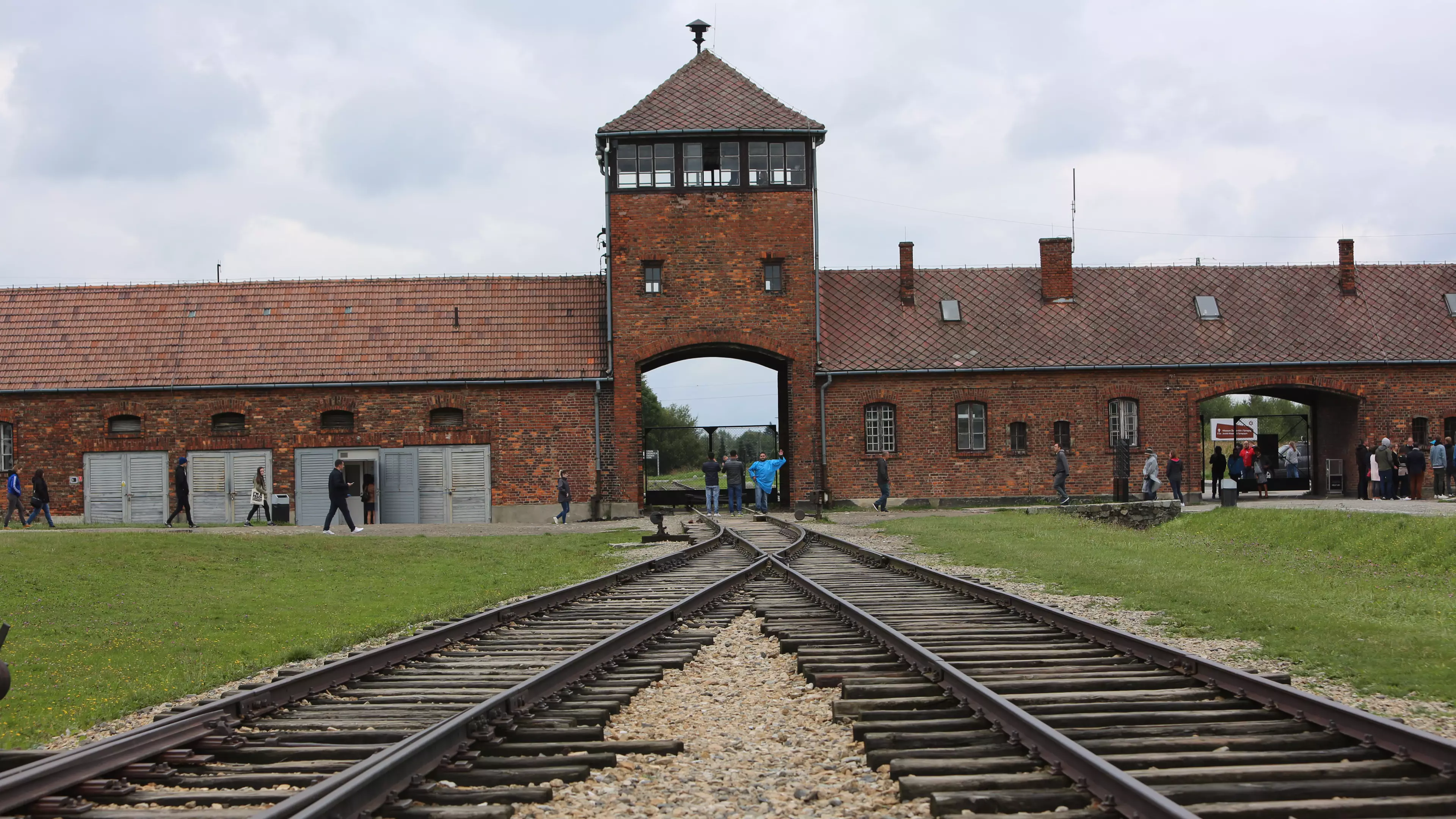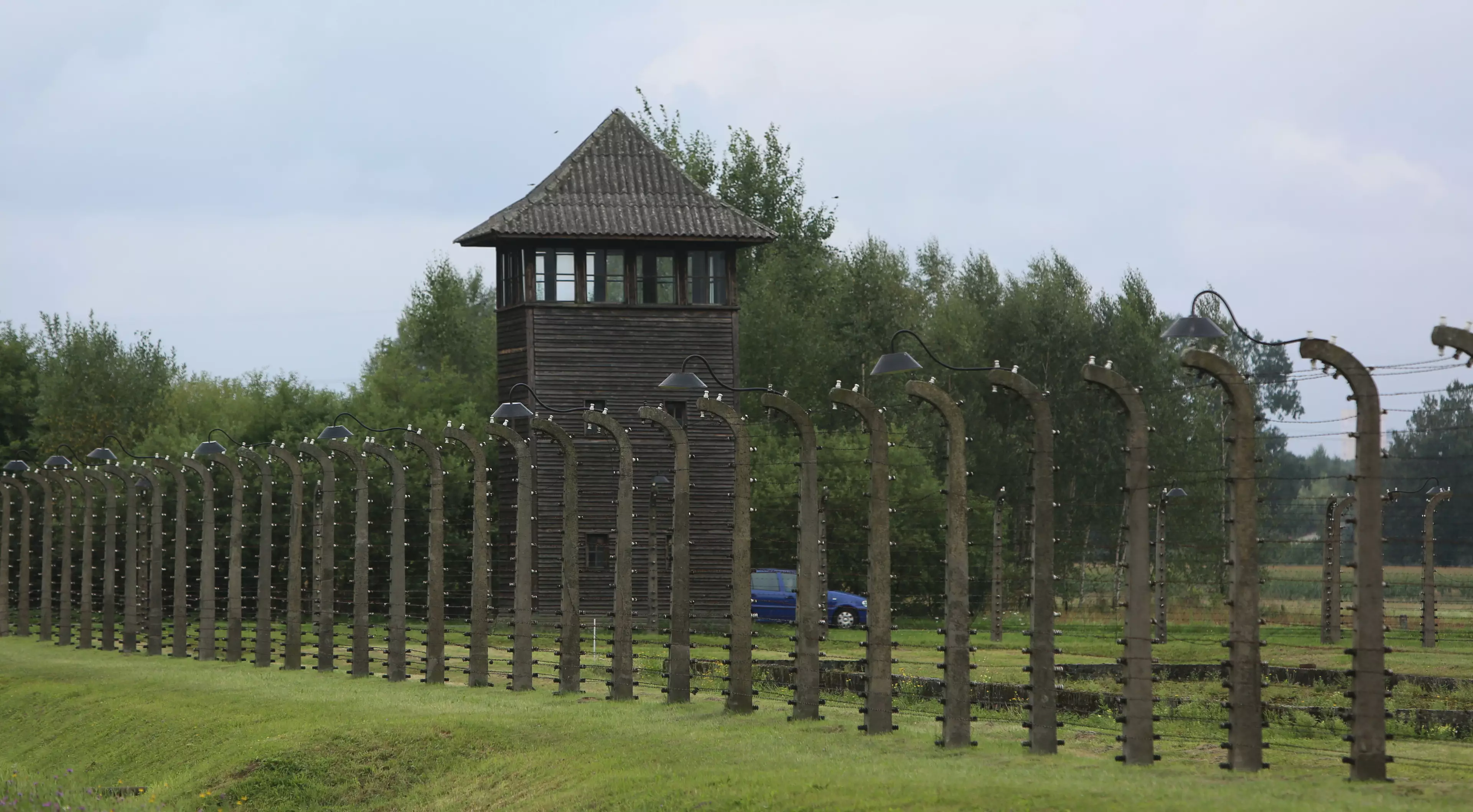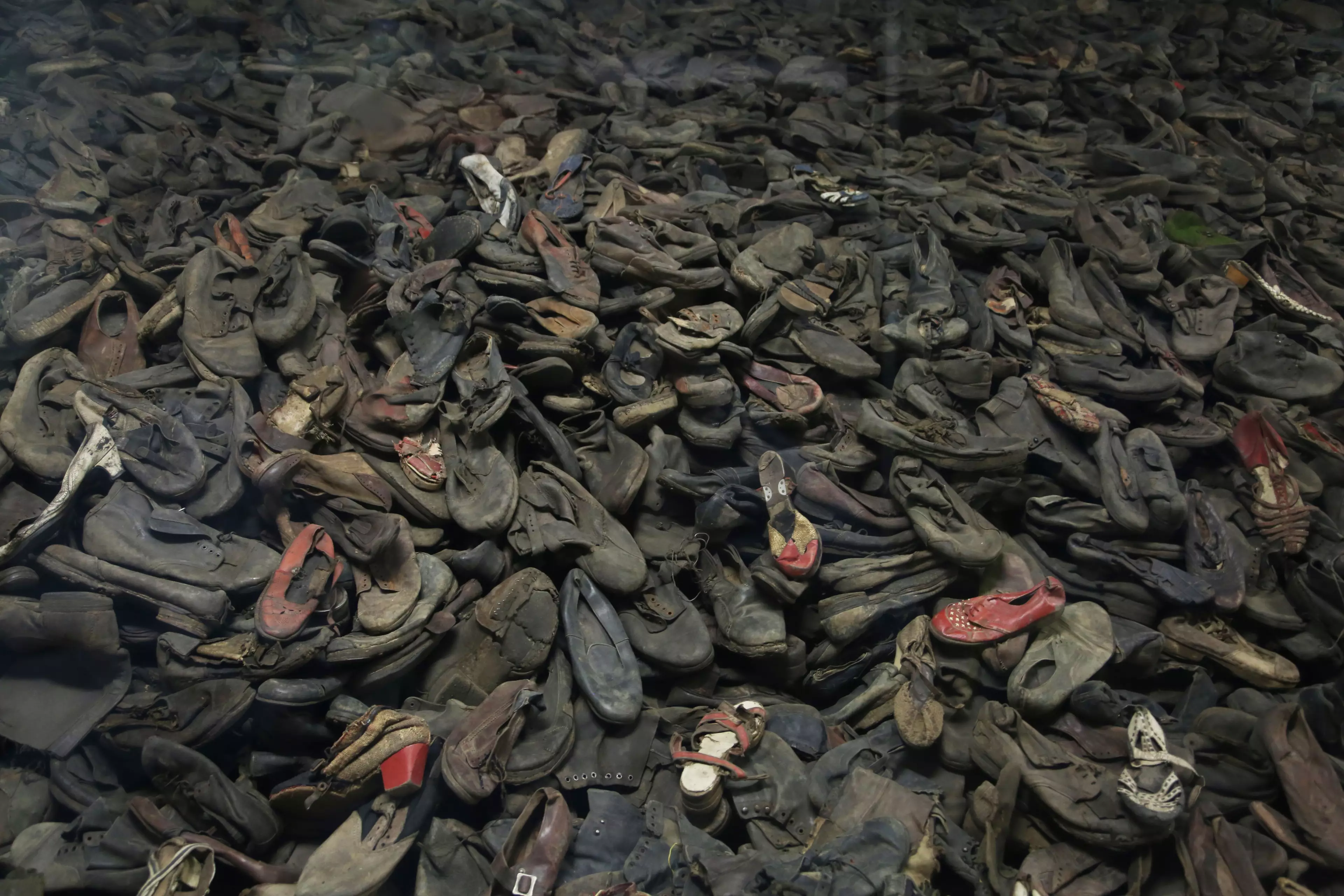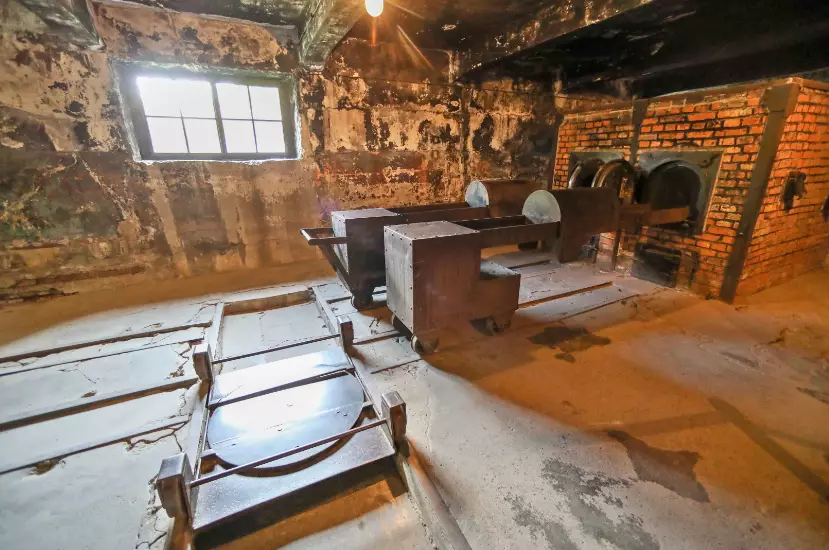
Notes written by an Auschwitz inmate who was forced to work for the Nazis have finally been deciphered through digital imaging software.
Written on scraps of paper, Marcel Nadjari, a Greek Jew, shared the shocking details of life at the concentration camp. He described how he saw thousands of people 'packed in like sardines' in the gas chambers daily, the BBC reports.
The 26-year-old had heard from other Greek Jews at the camp that his mother, father and sister had all died at Auschwitz-Birkenau camp a year earlier.

Credit: PA
Advert
In one letter, he wrote: "Often I thought of going in with the others, to put an end to this. But always revenge prevented me doing so. I wanted and want to live, to avenge the death of dad, mum and my dear little sister."
Nadjari was one of 2,200 Jews who were forced to work as slaves for the SS. The Sonderkommando, as they were called, were made to escort people to the gas chambers and then - horrifically - burn them, collect gold fillings and women's hair before disposing of the ashes.
One of the notes reads: "The crematorium is a big building with a wide chimney and 15 ovens. Under a garden there are two enormous cellars. One is where people undress and the other is the death chamber. People enter it naked and once about 3,000 are inside it is locked and they are gassed. After six or seven minutes of suffering they die."

Credit: PA
Advert
Nadjari, who knew that eventually the Nazis would kill him, too, hid his 13 pages of notes into a flask, which he sealed and buried near to Crematorium III.
However, Nadjari did not die at Auschwitz. After the war he married and moved to New York, where he and his wife had a little girl. He died in 1971, aged 53.
Meanwhile, his notes were found 36 years later by a Polish forestry student who was digging at the site. As they'd been underground, only around 10 percent of them were legible enough to be able to read. But a Russian historian, Pavel Polian, believed he'd been able to use modern technology to help decipher them.

Credit: PA
Advert
He enlisted the help of an IT expert, Alexander Nikityaev, who spent a year using Adobe Photoshop to help restore the faded words. Using a variety of filters, he was able to get 90 percent legibility, giving historians a chance to read a first-hand account of the horrors of the second world war.
Source: BBC
Featured Image Credit: PATopics: World News, World War Two